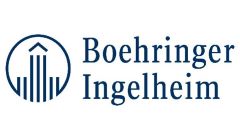Clinical improvements were consistent across patient subgroups including age, gender, ethnicity, and IL-36 gene mutation status

Boehringer Ingelheim announced new data from the pivotal Effisayil 1 trial presented at the 2022 American Academy of Dermatology (AAD) Annual Meeting in Boston.
The Effisayil 1 trial, recently published in The New England Journal of Medicine, showed significant clearance of skin pustules in patients with GPP flares within the first week after treatment with a single intravenous dose of spesolimab versus placebo. This effect was sustained over 12 weeks, according to data presented at AAD, which found that 84.4% of patients had no visible pustules after the 12-week trial duration and 81.3% had clear/almost clear skin.
“GPP is an unpredictable, painful, and potentially life-threatening rare skin disease with no available approved or efficacious treatment options in most countries,” said Boni Elewski, M.D., trial investigator and Chair, Department of Dermatology at The University of Alabama School of Medicine. “The findings presented at this year’s AAD Annual Meeting show that the efficacy of spesolimab is sustained over 12 weeks, providing further evidence of the rapid benefit that spesolimab could bring to patients living with the burden of GPP flares.”
Generalized pustular psoriasis is a rare, potentially life-threatening neutrophilic skin disease, which is distinct from plaque psoriasis. GPP flares greatly affect a person’s quality of life and can lead to serious and life-threatening complications, including heart failure, renal failure, and sepsis.
According to further data presented at the AAD Annual Meeting, rapid skin clearance observed following treatment with spesolimab was generally consistent across subgroups, including age, gender, ethnicity, and IL-36 gene mutation status Clinically significant improvements were shown within one week in patient-reported outcomes related to pain, fatigue, quality of life, and skin symptoms after treatment with spesolimab.
“With these additional data, we are gaining a more complete picture of spesolimab as a potential first-in-class treatment for people living with GPP,” said Kay Tetzlaff, Head of Medicine, Therapeutic Area Inflammation, Boehringer Ingelheim. “GPP flares have a significant physical and emotional impact on a patient’s life. Our goal is to bring Spesolimab to patients as quickly as possible.”
Spesolimab is currently under review by regulatory authorities. To date, spesolimab has received Breakthrough Therapy Designation in the US, China and Taiwan, Priority Review in the US and China, Orphan Drug Designation in the US, Korea, Switzerland and Australia, Rare Disease Designation and fast track in Taiwan, for the treatment of GPP flares. The European Medicines Agency validated the marketing authorization application for spesolimab in GPP in October 2021 and the submission is currently under evaluation.

Subscribe To Our Newsletter & Stay Updated